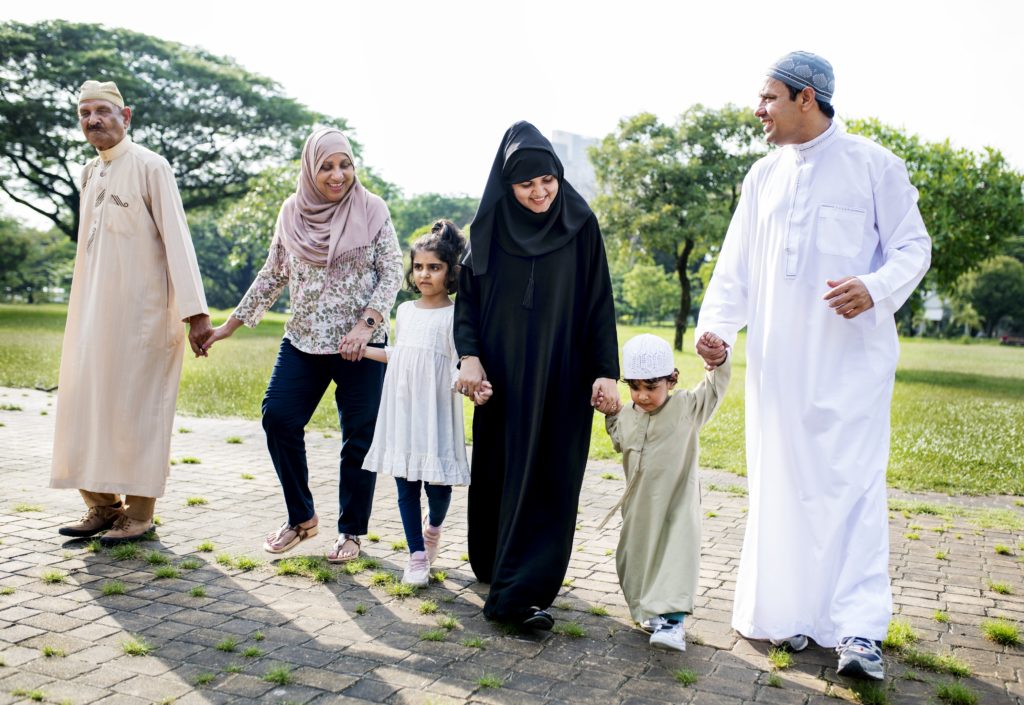Bridging the generational gap

A generational gap can conjure memories of painful family conflicts. While it may be experienced in any family, differing cultural views and practices that can exist within an immigrant family can create additional conflict. Whilst immigrant families from the Middle East, North Africa and Asia may place emphasis on family obligations and social harmony, mainstream British culture tends to celebrate independence, self-sufficiency, and individuality.
As an immigrant adult living in the UK, you may wish to continue your native practices in your new country. However, this may feel at odds with your children who are learning new practices of their own or attempting to cast off the ways of life passed down to them. Balancing this tension with the preferences of your children and the expectations of your community can lead to generational rifts within the family.
As you try to juggle the old with the new, differences may multiply and moments of mutual understanding may become rare. This may leave you feeling frustrated, distressed and trigger symptoms commonly associated with anxiety or depression. You might find yourself worrying a lot or imagining the worst-case scenario. This may disrupt your sleep pattern and make it difficult to relax at home.
There are several steps you can take to defuse the tension, build bridges and achieve conflict resolution.
Communicate openly
Make healthy and honest conversations a part of everyday life at home. Share details about your day with your children, so that they feel comfortable doing the same with you. Listening to your children’s perspectives can help you gain valuable insight into their lives which can strengthen your relationship with them.
Practice acceptance
Accept that your children may have interests, hobbies and attitudes that differ from yours. Treat a clash not as a power struggle, but as an opportunity to use discussion to improve communication and understanding. Try to be accepting of the different opinions and viewpoints your child may hold.
Engage in mutual activities
Demonstrate an interest in your children’s activities and their lifestyle choices. Don’t let your differences divide you – frame them as a positive instead and use them to develop a system of mutual learning. For instance, when you share your culturally significant traditions with your children, let them teach you about an interest that is close to their heart. You can also share companionship by doing mutually enjoyable activities together – even if it’s a hobby as simple as watching a TV show.
Don’t hesitate to ask for help
If you’re finding it hard to reach a common understanding, have a chat with someone outside the family. They might be able to give you a fresh perspective on the situation. Seeking support from friends with similar experiences may help the stress caused by the conflict. You can also make an appointment with a counsellor to talk things through.
Little problems and anxieties can build up and make us feel low without realising. Therefore having someone you can use as a sounding board for your thoughts is helpful. The counselling offered through Community Living Well is a talking therapy in which you can explore difficult, confusing or painful experiences with the help of a clinician. Through this process it is possible to gain insight and find new ways of relating to yourself and others. You can make a referral online at communitylivingwell. co.uk.
This story was originally published in the Autumn 2019 Community Living Well magazine. It has been edited for website purposes. Subscribe today to receive mental health and wellbeing tips straight to your inbox, four times a year!
Refer to the Community Living Well service here.
Author: Michelle Jackson
Posted on: 10th December 2019



